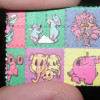Did we unintentionally domesticate animals?
Interview with
An article was published recently suggesting that when it comes to sheep and goats in a region of Turkey, humans may not have intentionally meant to domesticate these animals. So have we ended up now with animals that we didn't maybe mean to have domesticated...
格雷格-是的。我认为有这个想法we're not terribly humble as a species. We tend to be very self-motivated and we tend to think of ourselves on the up of whatever thing that we're categorising. And as a result of that, when we look to the past, we tend to have this very interesting perspective, which assumes that everything had a reason or a purpose of getting there and that we were always acting in a very intelligent fashion in order to get to where we are now, which was a very good idea at the start of everything. And this presentist perspective is a bias that really undermines what was actually happening throughout tons of history, which is full of nothing really, but accident and happenstance and opportunity. So there's a really cool idea that some colleagues of mine put out a few years ago where they referred to these things in as labor traps. Rather than this kind of presentist perspective, where it's like we started domesticating plants because we knew it would be good for us and we wanted larger seeds and we spent more time focusing on just a small handful of things. Instead, they were like, once you start investing in things, you then become more reliant upon it. And what happens is there's this whole really interesting trajectory which starts off - and you can apply this to just about every aspect of your life. When you first encounter something, you're often kind of wary of it. Then you become accustomed to it, but you don't really pay that much attention to it. Then you start becoming a little bit more reliant upon it. And after a little, while you become wholly dependent upon it completely. And that's probably true of the relationship that you're in right now, or your relationship with any food stuffs that you eat, or what your exercise as routine or anything else. And this is probably the same trajectory that was taking place with a lot of early domestic plants and animals as well, where initially at the site that you're talking about called Aşıklı Höyük in Turkey, where at the very bottom layers, you see people who were taking advantage of a wide range of different resources from a huge catchment area around the site. And then through time, there becomes this increasing reliance on a small handful of sheep and goat. And that process took 300-500 years. It's not like somebody looked multiple generations in the future and said, "we want to only be exclusively eating sheep and goat and we think that that's gonna be the best thing for humanity going forward", because those kinds of decisions aren't operating on the sorts of time scales that are visible within the archeological record. I think we are better served by looking at these processes in a much more accidental and happenstance rather than always assuming that we were making brilliant decisions as a species all the way back and we can look back at our ancestors and go "well done, we really love this peanut butter and jelly sandwich."
Julia - Yes, the brain has very much a present bias as well - we're not really thinking years down the line. It's like, what could I do right now? It wouldn't have been priority to think years down the line. You're thinking when's my next meal going to happen. And that relationship together probably led to a lot of the domesticated, as we say, animals that we have today.
Greger - Exactly.







Comments
Add a comment